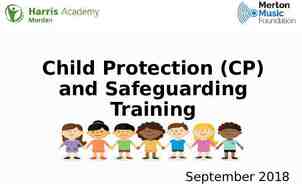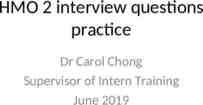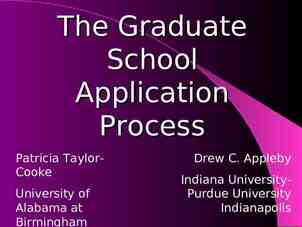Growth Mindset and Ivy Tech’s Partnership with PERTS and Stanford
16 Slides5.72 MB

Growth Mindset and Ivy Tech’s Partnership with PERTS and Stanford University Nancy A. McWilliams Saundra Kay King Associate Professor of Economics Assistant Vice President of Remediation Department Chair; Humanities, Communications, and Innovation and Student Success Systems Office Muncie/New Castle Campuses 2018 Student Success Summit French Lick, Indiana April 12-13, 2018

Fixed Mindset Intelligence is a fixed trait You can’t change it Growth Mindset You can grow your intelligence through effort, practice, and good strategies This is too hard. I’m never going to get this. OK, this is tough, so I’ve got to read and preview notes before I come to class. Dr. Carol Dweck Lewis & Virginia Eaton Professor of Psychology Department of Psychology Stanford University Stanford, CA 94035

What is a growth mindset? Fixed Mindset Goal in School Not look stupid Growth Mindset Learn Effort Means You’re not smart You’re Learning Reaction to Failure Give Up Work Harder

Reinforcing cycle

Why growth mindset? Fixed Mindset Goal in School Not look stupid Growth Mindset Learn Effort Means You’re not smart You’re Learning Reaction to Failure Give Up Work Harder Achievement Lower Higher

So, why is this important? Ivy Tech Community College students will earn 50,000 high-quality certifications, certificates, and degrees per year aligned with the needs of our workforce. Ivy Tech Vision Statement

Ivy Tech Partnership with Stanford and Growth Mindset Program Pilot study results (Fall 2012 & 2013) 1000 Ivy Tech students from 5 campuses Randomized control trial Two 45-minute online sessions, 2 – 4 weeks apart Tracked student academic outcomes for 2 years College Perspectives Program Fall 2015 Over 10,000 Ivy Tech students from 10 regions Randomized control trial Two online sessions Session 1: 30-45 minutes, Session 2: 15 minutes 2 – 4 weeks apart Currently tracking long-term outcomes Growth Mindset for College Students Beginning Fall 2017 A growth mindset program designed to increase community college students' achievement and motivation. This is the ”intervention” from previous RCTs, no control One 30 minute online session Implemented in ENGL 111 in Fort Wayne, IVYT classes in all other campuses and sites.

Growth Mindset for the College Student What does the intervention look like to the student? 30 minute online module Muncie/New Castle implemented as an in-class activity No grade is given for activity Limited student exposure to Growth Mindset concepts Completed in week 2-3 of the semester Absent students given opportunity to ‘make-up’

Three Steps of the PERTS Intervention Step 1: What is your experience with learning? Students are asked about current learning behaviors and attitudes as well as challenging learning experiences in their past. Step 2: Material about the brain and intelligence along with testimonials from other students are presented. The student is asked about their application of this material to their own individual belief system about intelligence and learning.

Three Steps of the PERTS Intervention Step 3: Students are then asked to share your findings with another person who might be struggling. The act of writing this type of persuasion letter, reinforces the individual's belief system allowing them to apply this fact to their future experiences. Self-Actualization internalizes the beliefs and new concepts previously presented.

Three Steps of the PERTS Intervention

Three Steps of the PERTS Intervention

Reporting & Next Steps Report from Stanford for results from the writing assignment Allows college to add attribute that can be tracked Results encouraging with largest impact on average students Research suggest challenges in reaching high risk population Next Steps: Faculty Development Faculty buy-in has been a key component in success of PERTS TILT (Transparency in Learning and Teaching) Webinar Review Selected texts for Growth Mindset language

Next Steps Cultivate a Culture of Growth Use student feedback to reinforce the ‘not yet’ Reinforce with SMART goals for meeting objectives Differentiated Teaching Strategies Collaborate with Cross-Curriculum for Best Practices Be willing to Fail – Faculty Growth Mindset Avoid False Growth Mindset Praise without student effort Feedback that does not create growth Emotional Intelligence Challenges

Contact Information Nancy McWilliams [email protected] Saundra Kay King [email protected]







